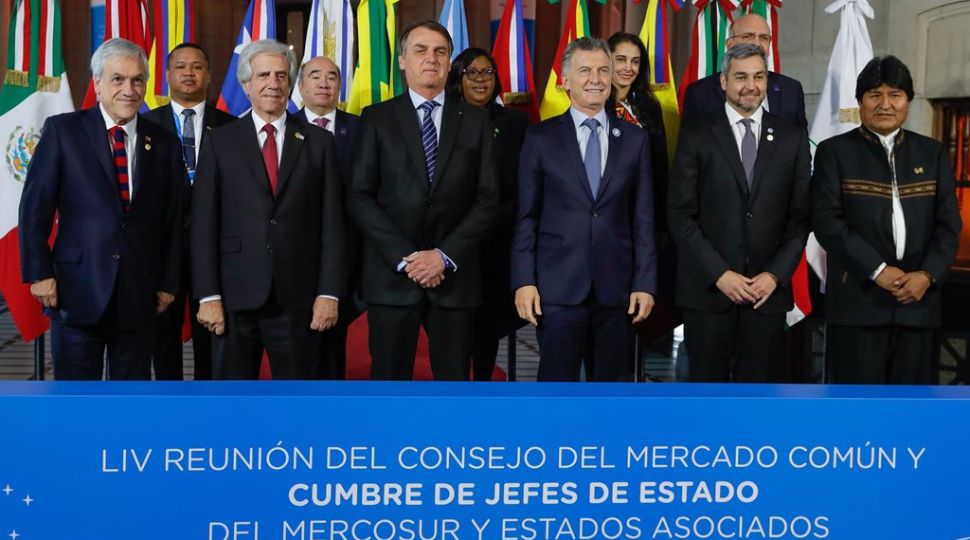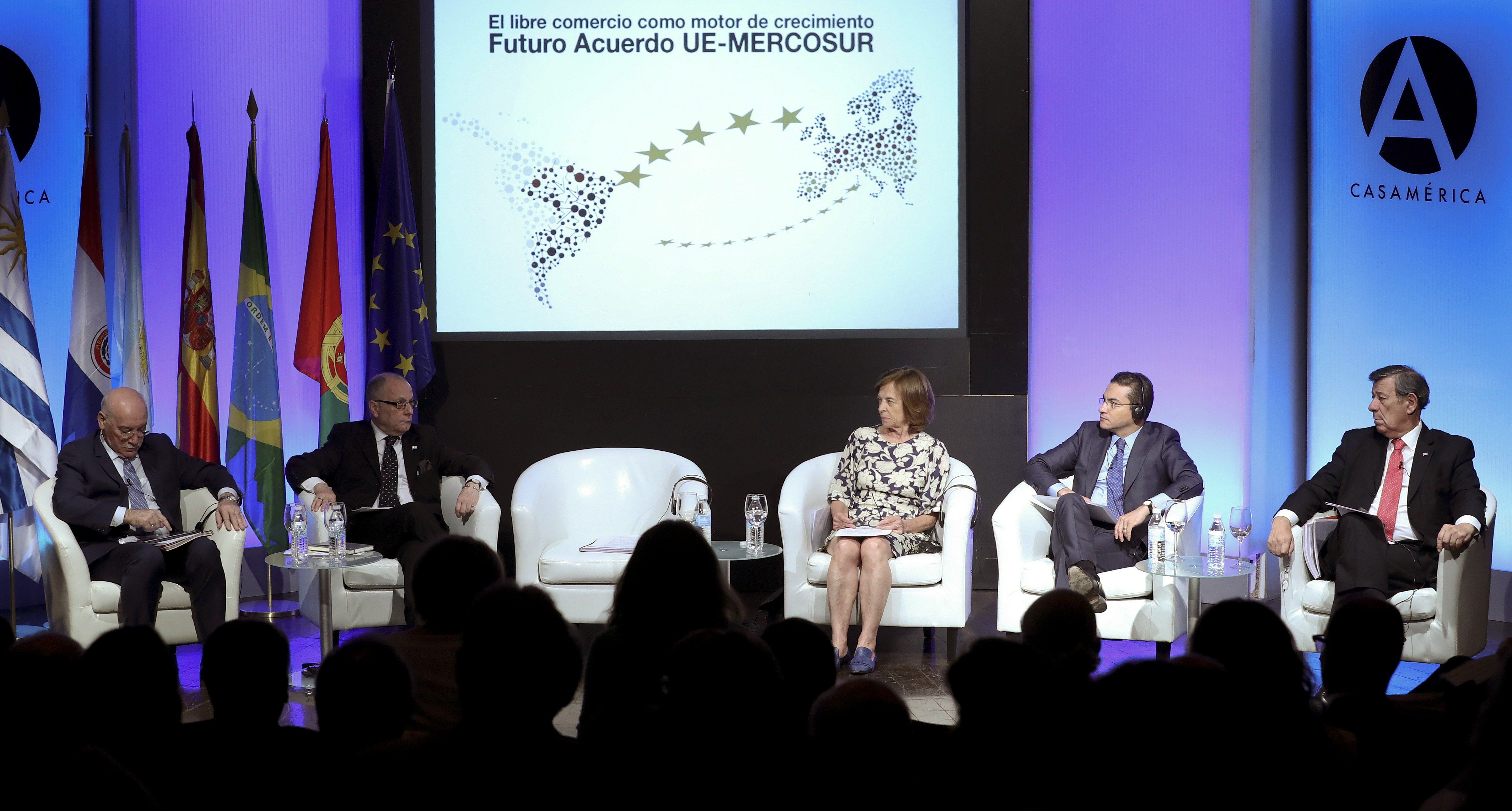Prospects for the EU-Mercosur Agreement's Entry into Force

The AA negotiated since 2000 by the EU and Mercosur—an economic integration organisation of Argentina, Brazil, Paraguay, and Uruguay (Venezuela joined in 2012, but its membership has been suspended)—consists of three parts. The political one and another part related to cooperation in specific areas (e.g., human rights) were settled in 2018. Agreement on the third part—trade—was possible only after both sides overcame long-standing differences about the scope and principles of opening their respective markets.
Favourable Political Conditions
The European Commission (EC) was eager to conclude the talks before the end of its term due in October and the expected Brexit. The agreement with Mercosur complements the EU trade liberalisation process with most Latin American countries and will improve the competitiveness of Union companies in the region. The EC also wanted to take the opportunity to score another negotiation success after the agreements with Japan and Canada and to promote free trade that counterbalances the current U.S. administration’s attempts to undermine the regime’s principles.
Among the EU Member States, Spain was the country most determined to sign the agreement. Together with the Czech Republic, the Netherlands and Germany, amongst others, the Spanish government argued that the overall benefits of the accord with Mercosur should be considered and not just the impact on individual sectors. That stance outweighed concerns expressed mainly by France, supported by Belgium, Ireland, and Poland, that the agreement undermines the interests of European agriculture. The French government conditioned the signing of the deal on obtaining assurance from Brazil’s government that it would not withdraw from the Paris agreement on countering climate change.
In Mercosur’s case, the conclusion of the talks was possible mainly thanks to pro-market governments in the bloc’s largest countries—Argentina and Brazil. Argentine President Mauricio Macri’s engagement was particularly notable. Finalising the talks with the EU has been his government’s top priority since taking over in 2015. However, he also has become increasingly wary of losing power in the October elections to the opposition, considered less favourable to the accord. In Brazil, President Jair Bolsonaro’s government, which took over in January, assumed a more flexible position in negotiations with the EU than its predecessors.
The EU is the first major partner with whom Mercosur has reached a free trade agreement (FTA). For the South American bloc, it serves as a boost to deepen its economic integration. Contrary to the bloc’s founding treaty goals, Mercosur has never achieved the status of a single market. It rather is an incomplete customs union with a number of exceptions to its external tariff. Thanks to the agreement with the EU, the bloc may be more attractive in its ongoing negotiations with other partners (e.g., EFTA and Canada) and in cooperation with other countries in the region, mainly with the Pacific Alliance (which includes Chile, Colombia, Mexico, and Peru).
The Main Provisions and Their Significance
According to the available details of the agreement (the full text is yet to be published), its most important feature will be the mutual abolition of most tariffs. Imports of the most sensitive products will be opened gradually using transitional periods and quota limits. With the savings from liberalisation estimated at €4 billion annually, the deal may be the most significant FTA negotiated by the EU to date.
Mercosur pledged to remove 91% of its tariffs (based on import value), with 13% immediately reduced after the agreement’s entry into force, and the rest in periods of up to 15 years. The bloc will have the maximum time to open its market for passenger cars and a 7-year grace period with a maximum quota of 50,000 units charged at half of the current 35% duty.
The EU will remove 92% of its tariffs, 76% immediately and the rest in periods up to 10 years. For example, it will accept 99,000 tonnes of beef with a 7.5% tariff and a zero-duty quota of 180,000 tonnes of poultry, both for six years. These quotas amount to about 1% of the annual consumption of these goods in the EU and current imports from Mercosur already exceed the negotiated limits; therefore, the negative effects of liberalisation for EU producers should be limited. Nevertheless, organisations in various sectors argue that breeding standards are lower in Mercosur countries and pesticides banned in the EU are used in farming there. However, the agreement allows for the suspension of preferential trade rules in case of excessive imports or a health risk.
The EU will be the first foreign entity with equal access to the public procurement market in Mercosur on the state level. In addition, the bloc’s member governments pledged to consult regional and local authorities on including their tenders as well. Provisions on services will facilitate the movement of professionals to foreign subsidiaries and EU firms engaging, for example, in maritime transport, telecommunications, and e-commerce. A significant Mercosur concession was that it will comply with the EU’s Geographical Indications rules, which serve to protect the names of food products linked to a specific local origin (the list includes 355 EU products and 220 from Mercosur). The agreement does not include, however, a controversial investor-state dispute settlement mechanism.
An important aspect of the agreement is the bundle of provisions on climate protection. The signatories will be required to implement the Paris Agreement and to respect the principles of sustainable development. The deal will allow blocks on imports of products originating from areas with illegal logging, particularly in the Brazilian part of the Amazon. These regulations gained importance in view of the increasing pace of deforestation of the rainforest and the Bolsonaro government’s attempts to loosen environmental legal protections.
Prospects
The EU and Mercosur will now spend at least half a year revising the final text of the accord. To enter into force, in Mercosur, the document will need the consent of every member state. In the EU, the ratification procedure will depend on how the EC classifies the document. If the Commission separates the trade part from the AA (it has never done so), it will be able to consider it as agreed under the EU’s exclusive competence. In that case, consents from the EU Council and the European Parliament (EP) will be enough for the agreement to enter into force. Only the political and cooperation parts will be subject to approval by each EU Member State. If the EC treats the accord with Mercosur as a whole (mixed competence), the deal could be provisionally applied after approval from the EU Council and the EP, but all EU members will need to ratify the accord, and in some cases (e.g., Belgium), approval by regional parliaments also is required. All that means the agreement might enter into force in 2021 at the earliest.
However, the ratification process could be delayed or stopped by protests by groups representing various sectors exposed to increased competition under the deal and by ecologists who see the AA leading to an increase in food exports to the EU at the expense of environmental degradation in Mercosur countries. The latter concern is echoed by the French government, which likely will use ratification to pressure the Brazilian government to protect the Amazon rainforest. The Greens in the EP will also take a similar position. It is uncertain how the potential victory of the opposition in Argentina in October will affect the ratification process there. Consequently, the document’s entry into force may be delayed by a few years and will depend on favourable political conditions, just like the conclusion of negotiations.
For Poland, Mercosur as a bloc is not an important economic partner. Poland has a trade deficit exceeding €1.1 billion (with the value of Polish exports about €600 million). The EU-Mercosur agreement may increase the attractiveness of those markets for Polish businesses. As a significant supplier in value chains, Poland can benefit from expanding sales markets for European machinery, cars, and chemical products; however, the agreement will increase competition for Polish agri-food producers, in particular in the beef, poultry, and biofuels sectors. These stakeholders will dominate the debate assessing the impact of the agreement and affect its potential ratification in Poland






